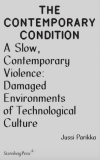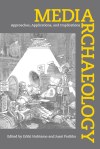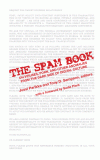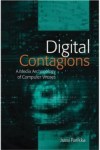The Air of Data: An Alternative Steampunk
There are no clouds, just data centres. But suddenly they tickled the science-fictional nerve again when Google released its “inside view” to their factories of data: it has colours! The rather glitzy pictures showed this seeming transparency and the spatial sense of data management. Besides space, it’s about the elements. Air, water plays a crucial role.
In a great phrase in Andrew Blum’s book Tubes, a Facebook data centre manager (Ken Pratchett) sums it up: “This has nothing to do with clouds. It has everything to do with being cold.” Cool, cold data is not just a linguistic or visual metaphor, despite that elegant modernism that still lives inside the architectures of data places: Mondrian as data. Instead, it has to do with climate control. Ecology. Air. Coolness is not a media theoretical attitude in this context but a media management issue that ties the earth to the escape velocity of data.
Data needs air. “Cool outside air is let into the building through adjustable louvers near the roof; deionized water is sprayed into it; and fans push the conditioned air down onto the data center floor” , explains Blum. Coolness of cyberpunk transforms into coolness of building’s climate control. Fans surround the terabytes of data. Pratchett continues about the building: “The air hits this concrete floor and roils left and right. This whole building is like the Mississippi River. There’s a huge amount of air coming in, but moving really slowly.”
It’s important to notice the persistence of issues of ecology from air to the soil as well as non-cognitive work: that we still talk of factories and rather physical processes having to do with our hardware and how we manage and work with data in its material level.
Blum: “The cloud is a building. It works like a factory. Bits come in, they get massaged and put together in the right way and sent out.”
A different sort of steam punk for the 21st century.




















Dear Jussi, how about a book on metaphysics?
Kind regards.
If I will write such a book on metaphysics, it probably would be about Empedocles and the elements…! “Now hear the fourfold roots of everything: enlivening Hera, Hades, shining Zeus. And Nestis, moistening mortal springs with tears.”
Background noise is the first object of metaphysics. – Serres
I like this quote a lot. I should have adopted it as the slogan of my blog!
yeah…
http://punctumbooks.com/titles/a-sanctuary-of-sounds/
Looks interesting Andreas!
I wonder what interesting metaphors might come out of the concept of geographical redundancy, relative to these data centres. Sure clouds are actually data centres … but what makes a data centre ‘the cloud’ is that the data they store doesn’t know that it is there … and it is most very probably also somewhere else. I’m not sure how to express it … its a kind of geographical agnosticism. Its closer to how stored energy functions. Doesn’t matter where the energy comes from, or where it is stored … it is on tap. Ditto ‘the cloud’. It represents a logical separation from geography, but not a physical one … yes that’s it. A logical separation, not a physical one. I wonder what else functions like that.
Hi, excellent comment. I really like how you frame it, as it both packs in the history of computing emphasis on logics (without entropy) and geophysics (all is entropic). I’ve been recently working especially on “geology of media” which might be a new project of mine, where I am interested in this geophysical connection, where instead of clouds, we talk of dirt and soil; the crust, minerals. I think to your final question, what else functions like that, I am intereted in seeing how this idea of logic/symbolic/physical actually is something to be considered in relation to all technical media — not least because of its environmental effects. A little online book I edited on the topic: http://www.livingbooksaboutlife.org/books/Medianatures
That book looks very interesting. I’ll have a deeper look. I haven’t dedicated any thought to the notion of waste, relative to digital media. What springs to mind, however, is that there is perhaps a relationship between abstraction, and waste. I wonder if waste generated can be seen as a function of abstraction, a concept fundamental to the building blocks of the digital medium. It would be quite amusing (for want of a better term) if it could be demonstrated that logical abstraction increases physical waste! If so, the purported efficiency and other benefits of de-centralised digital systems would be demonstrated to be burying the planet.